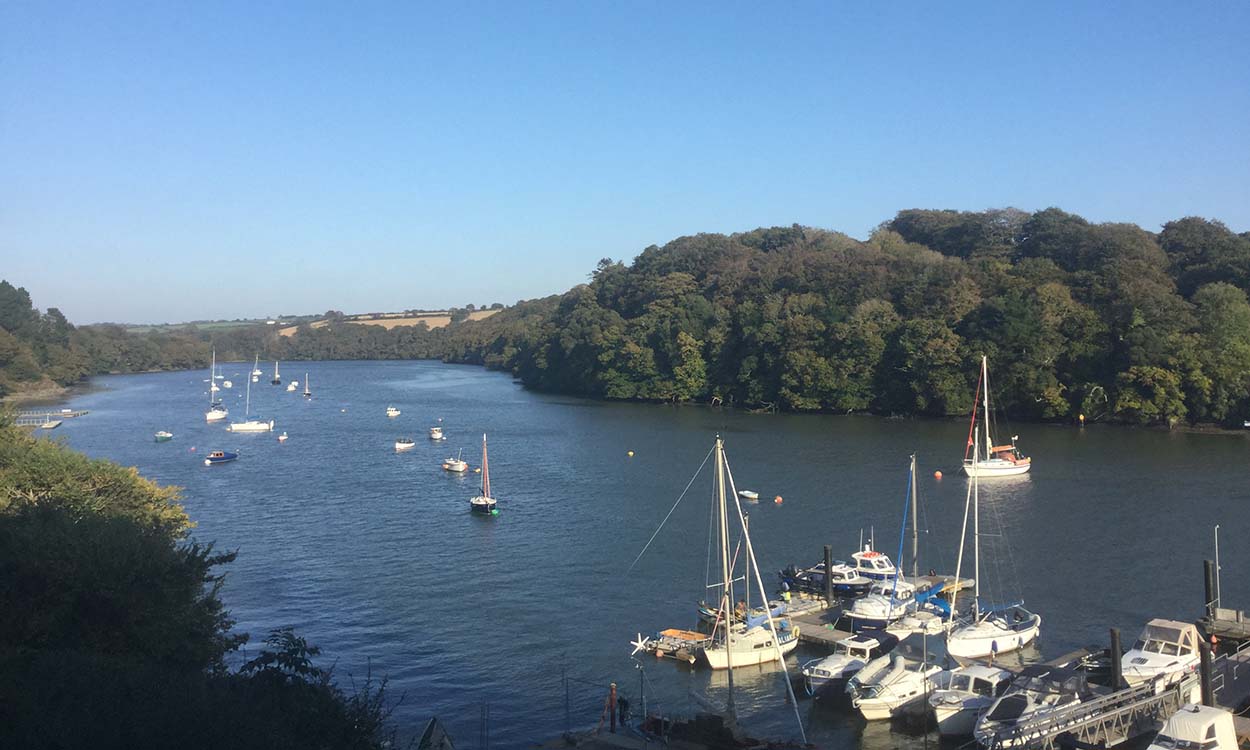It isn’t just the young who are fuelling Labour’s surge. Andy Chatfield finds himself re-evaluating his neighbours in a cosy riverside village near Truro
Malpas Village Hall didn’t feel much like the seat of a left-wing revolution on June 8.
In the best of times or the worst of times, this idyllic upmarket village on the bank of the Truro River tends to radiate complacent contentment with the status quo, and election day seemed no exception.
When my wife and I dropped into the polling station – a converted chapel – to fulfil our democratic duty, we were the only voters there. The two women officiating seemed glad of our company.
Outside, the sunlight doodled its shimmering patterns on the water and a lone heron made an efficient splash landing. There was not a teller or activist in sight.
At the time, we suspected ours were the only two Labour votes cast in this quiet cul-de-sac, where we are lucky enough to be renting a house no more than 100 yards uphill from the hall.
We have plenty of friends here but seem to be among the poorest and youngest. That is an odd feeling for two solidly-employed fifty-somethings.
The village has many well-heeled pensioners and more than its fair share of mostly absent second-homers. The ferry which, once or twice a day, chugs up from the city (tides permitting) failed to bring any general election fever here. The EU referendum was anarchic by comparison: a Remain poster I defiantly affixed to my wheelie bin had been ripped off by collection day. I did not call the police.
This neck of the woods was surely a banker for sitting Tory MP Sarah Newton.
But perhaps I misjudged my neighbours, assuming some of them actually turned out to vote.
Malpas is at the far edge of the constituency which embraces Falmouth and Penryn along with Cornwall’s capital. The received wisdom is that it was the young that fuelled Corbyn’s surge here. And yes, it does seem logical that the 22.5 per cent growth in Labour’s vote share came largely from the under-25s, mobilised to declare, in words Mrs May herself had employed for very different reasons after the latest London terror attack: “Enough is enough.”
But it is becoming evident that is not the whole story.
Analysis of the results is still incomplete, but the Financial Times has already started myth-busting.
While acknowledging the ‘youthquake’ among 18-24-year-olds, the paper also argues Labour’s relative success owed more to those aged between 30 and 45. The view was echoed by the Huffington Post among others.
Almost all the Labour activists I met in town were at least that age and, while I am no longer able to even pretend I am in that bracket, it nudges and even overlaps my generation.
Something more bizarre has happened than a mere youthquake
We ain’t millennials. Rather, I suspect, we are an odd mix of floating voters inspired by Corbyn’s remarkable campaign, fervent Corbynistas desperate for serious change, and instinctive Labour voters who decided, despite all the flak fired his way, to give him (or at least our local candidate) a chance.
The story in this part of the country is even more remarkable, given that most tactical voting sites were suggesting a cross for the Lib Dems was the only effective ‘progressive’ choice here until the very eve of the poll.
Oh, and the much-heralded social media campaign didn’t bypass us, by the way. We might be among the dwindling number of the grey or greying who still purchase newspapers. But those of us not yet too decrepit to use our thumbs are on Facebook and Twitter too, folks. Even Malpas pensioners were sharing memes.
Don’t get me wrong. The rapid growth in the engagement of young people was clearly a fundamental part of Corbyn’s ‘success’, as well as a welcome fillip to our democracy.
But in Truro and Falmouth, Labour’s vote went up by 4,800 votes. Even if every student voted (they didn’t), and each one voted Labour (unlikely), and no students here then had done so in 2010 (highly unlikely), the university population alone by no means explains the numbers.
Such results challenge our preconceptions and defy simplistic explanations.
Something more bizarre has happened than a mere youthquake. More than 28,000 people voted Remain in this constituency, but most apparently abandoned the one overtly anti-Brexit party – the Lib Dems garnered only 8,465 votes.
Perhaps the mystery voters can be found among born-and-bred Cornish folk who felt Conservatism isn’t working and Liberalism has had its day in these parts?
Maybe they can be found among the many relocating families and couples shocked to find that the employment ‘boom’ is yet to reach the Duchy, even if the property boom has?
Perhaps the region was simply asserting its long-established inclination to be – to again borrow our Prime Minister’s phrase – ‘bloody awkward’?
Who knows? Perhaps this little revolution was even nudged along by my neighbours, strolling down past the sleepy slipway, the cosy terraces of The Heron Inn and the quaint hut where the post office used to be. Down, down to the tiny chapel, glinting in the early summer sun, to make their own little political splash.
Andy Chatfield is Senior Lecturer in Production Journalism at Falmouth University and Head of Content for TruthFal


